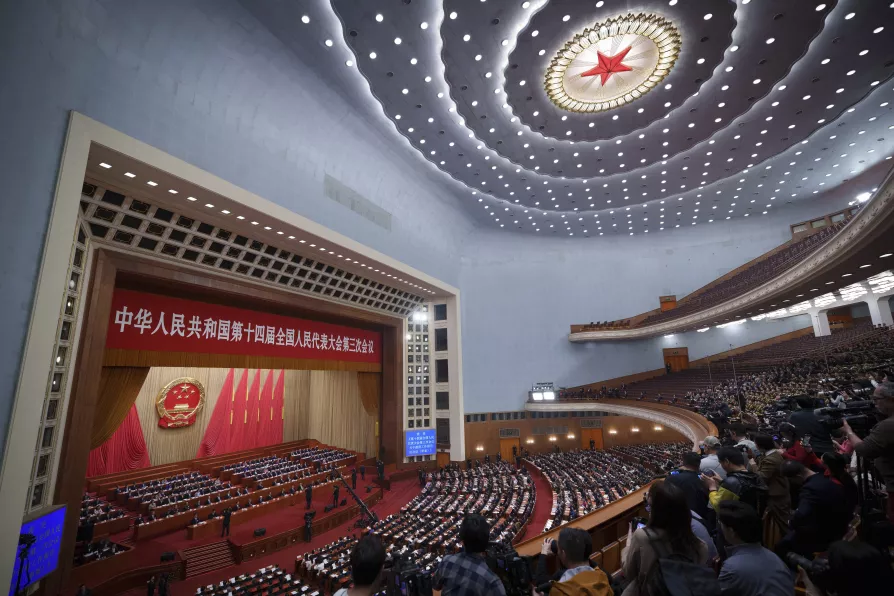As tens of thousands return to the streets for the first national Palestine march of 2026, this movement refuses to be sidelined or silenced, says PETER LEARY

 Closing session of the National People's Congress (NPC) at the Great Hall of the People in Beijing, China, March 11, 2025
Closing session of the National People's Congress (NPC) at the Great Hall of the People in Beijing, China, March 11, 2025
CHINA’S nearly 3,000-member National People’s Congress (NPC) has just gathered for its annual meeting in Beijing. Western mainstream media continually disparages China’s main legislature as a “rubber stamp parliament” — mindlessly repeating the phrase to numb readers’ minds to any thought other than that China must be a dictatorship.
That there are other forms of democracy — the idea of democratic centralism, deliberative democracy, has been around for over 100 years — the mainstream media cannot comprehend.
True, the NPC only meets for two weeks a year and never seems to reject any piece of legislation put before it. However, the reason why laws are passed unanimously is that they undergo a prior long and arduous process of deliberation, consultation and revision to ensure disagreements and differences are addressed and ultimately consensus is reached.

STEPHEN BELL reports from a delegation that traced the steps of China’s socialist revolution from its first modest meetings to the Red Army’s epic 9,000km battle to create the modern nation that today defies every capitalist assumption

One of the major criticisms of China’s breakneck development in recent decades has been the impact on nature — returning after 15 years away, BEN CHACKO assessed whether the government’s recent turn to environmentalism has yielded results












